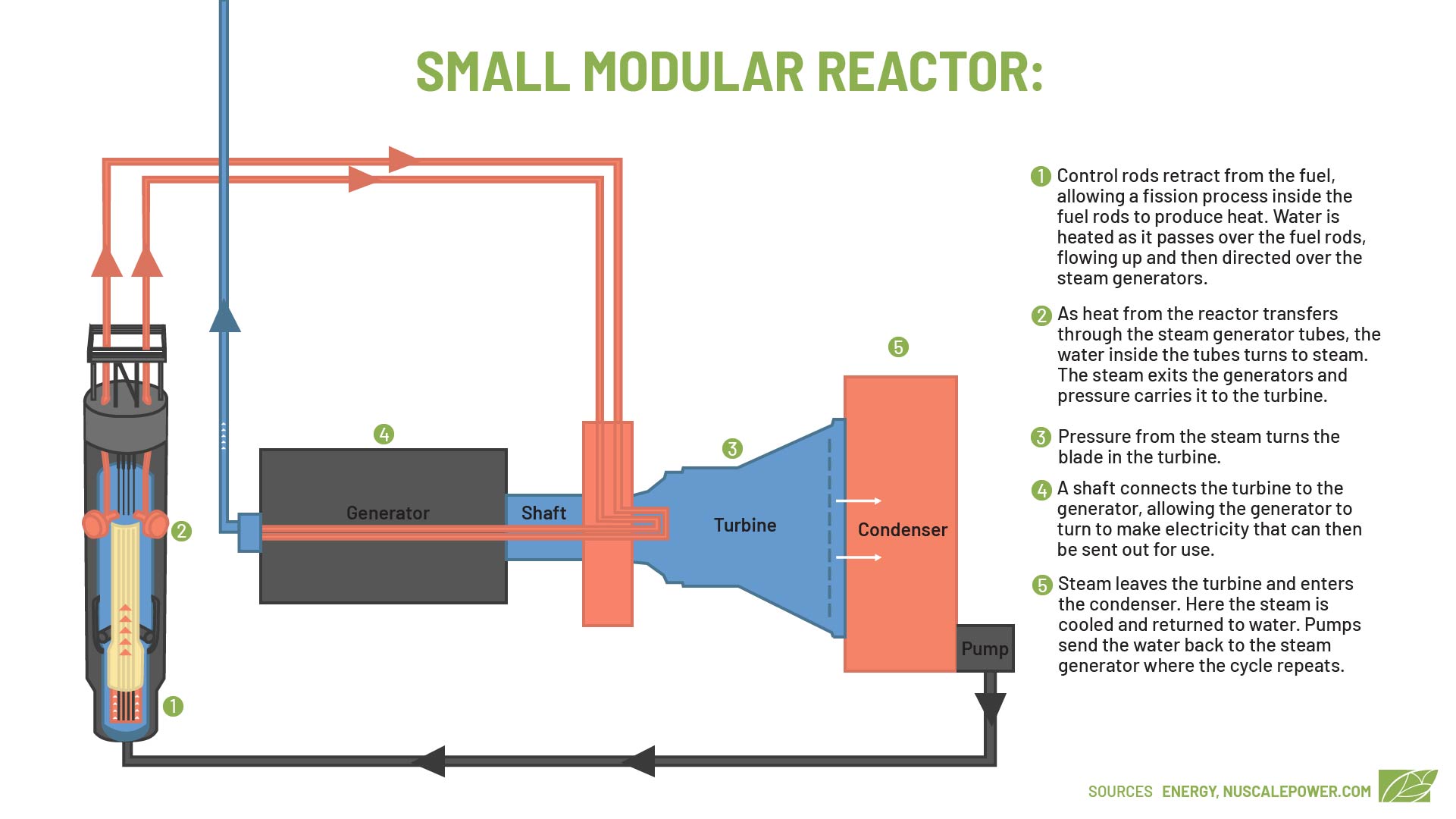A pair of bills setting the foundation for the state’s post-coal energy future have advanced in committee.
The House Committee on Utilities, Energy and Communications approved Senate Bill 271, which allows and incentivizes the construction of small modular nuclear reactors in the state, and Senate Bill 411, a voluntary approach to incentivizing communities to adopt renewable energy system siting standards.
SENATE BILL 271
Senate Bill 271 would empower the Indiana Utility Regulatory Commission to basically approve the construction, purchase or lease of small modular nuclear reactors for use in Indiana as long as the company trying to get the reactor built provides evidence of a plan to apply for all the state and federal licenses and permits necessary.
The bill would also add small modular reactor projects to the list of clean energy projects that are eligible for financial incentives, including the recovery of costs through rate increases for utility customers.
“Senate Bill 147 will, we hope, bring Indiana into an age of nuclear power that checks many important boxes, including 24/7 baseload reliability and low carbon,” said bill sponsor Sen. Eric Koch.
Small modular nuclear reactors are about the third of the size of traditional reactors and produce about 300 megawatts of electricity, about half the power produced by a coal-fired power plant.

The reactors produce energy without producing vast amounts of carbon dioxide or methane, greenhouse gases emitted by power plants powered by coal and natural gas that trap heat in the atmosphere and change the climate.
Consumer and environmental advocates opposed the bill in its current form, saying it would allow companies to pass on the financial risk of undertaking unproven reactor projects to customers.
Customers could end up paying for incomplete or abandoned nuclear projects for years, as has happened in Indiana, Georgia and South Carolina.
“Let’s not give a blank check to an industry that has yet to prove that this technology is commercially available. Please, please protect the ratepayers of Indiana and reject Senate Bill 271,” said Citizens Action Coalition executive director Kerwin Olson. “We can continue the conversation over the wisdom of SMRs and nuclear power in the state of Indiana, but now is not the time. The industry is not ready. There's no proven track record.”
There are currently no small modular nuclear reactors in operation in the U.S., but one project is in development in Idaho.
A 12-module nuclear plant partially subsidized by taxpayer money and backed by 36 electric utilities dubbed the Carbon Free Power Project was approved for construction at the U.S. Department of Energy’s Idaho National Laboratory in 2015.
The project received approval from the U.S. Nuclear Regulatory Commission in August 2020. In the months after approval, Utah Associated Municipal Power Systems, the utility group intending to buy the plant, announced the project would be delayed by three years and costs would climb from $4.2 billion to $6.1 billion.
Some UAMPS member utilities pulled out of the project after the delays and price hikes were announced. In October 2020, the DoE awarded UAMPS $1.355 billion over 10 years to complete the project.
In July 2021, UAMPS announced it would reduce by half the number of reactors that would be installed at the plant. As of December 2021, the company had not received its construction and operating license from the NRC.
The bill passed the committee by a vote of 8 to 3.
SENATE BILL 411
Senate Bill 411 seeks to make siting regulations much more predictable for renewable energy companies seeking to expand into Indiana by rewarding communities that choose to adopt certain renewable energy siting standards with financial incentives.
The bill would establish a “commercial solar and wind energy ready communities development center” with the Indiana Economic Development Corporation that would certify communities willing to establish some renewable-friendly siting standards.
The certification would allow those communities to receive a $1 per megawatt hour of wind or solar energy generated by projects in those communities from the renewable energy project developer.
The bill is the second attempt to establish standardized wind and solar siting requirements in the state after several dozen Indiana counties enacted ordinances discouraging wind and solar projects.
A bill presented last year attempted to establish statewide siting requirements, but it later died in committee.
“If you asked me at the end of last session if I would be bringing back a renewable sighting bill this session, I would have said, ‘No way,’ but I worked with [Rep. Ed Soliday] and worked with stakeholders in support of and in opposition of the bill last year, and came back this year with a different approach,” said bill sponsor Sen. Mark Messmer.
The bill has widespread support from business groups, environmental advocacy organizations and electric utility trade organizations.
The bill passed unanimously.
Both bills now head to the full Indiana House of Representatives for consideration.